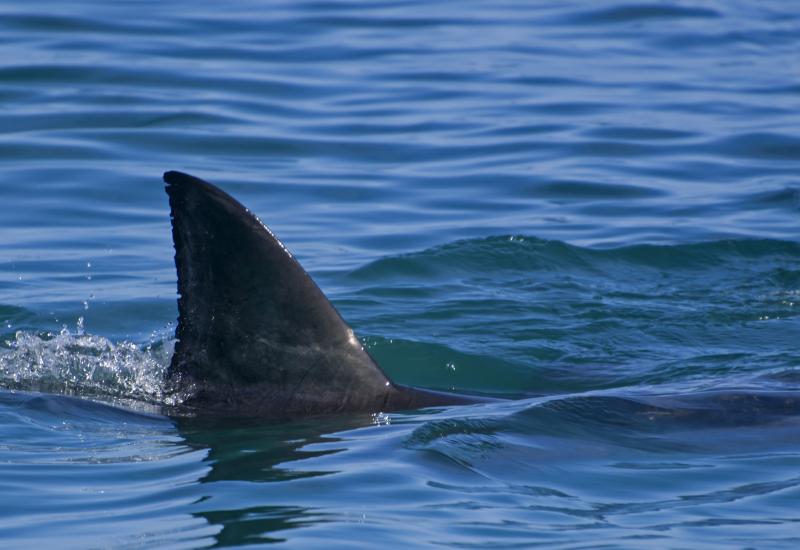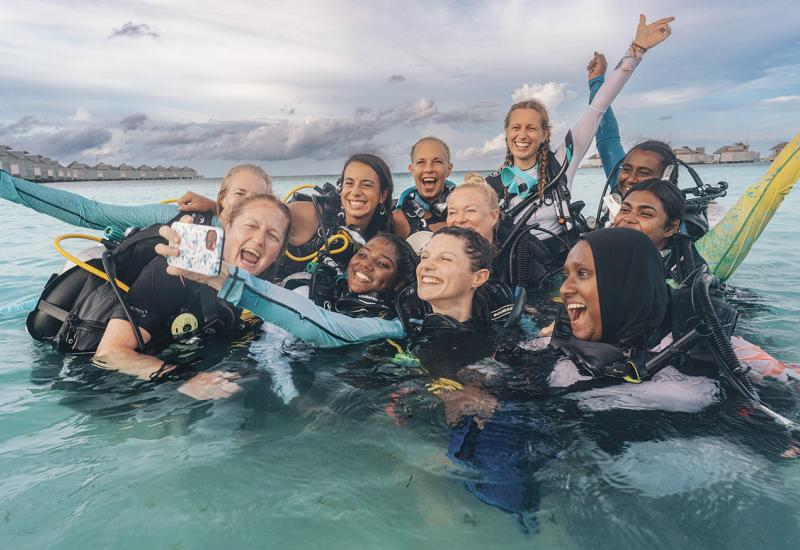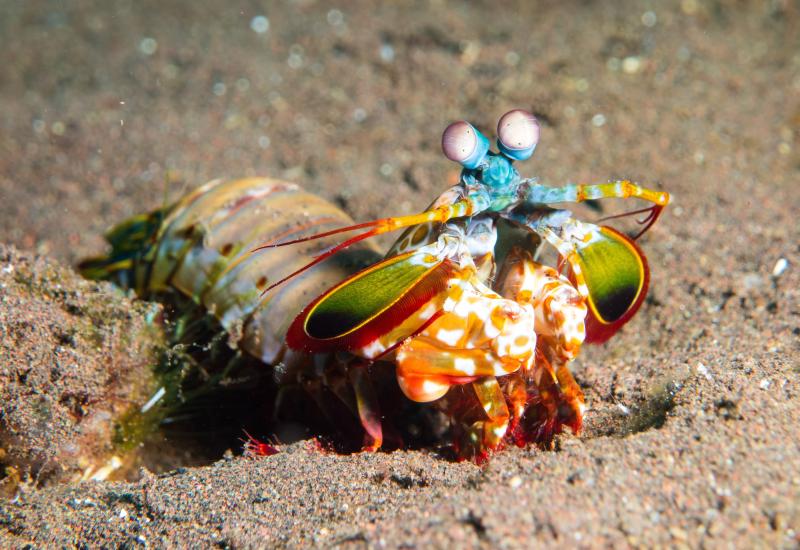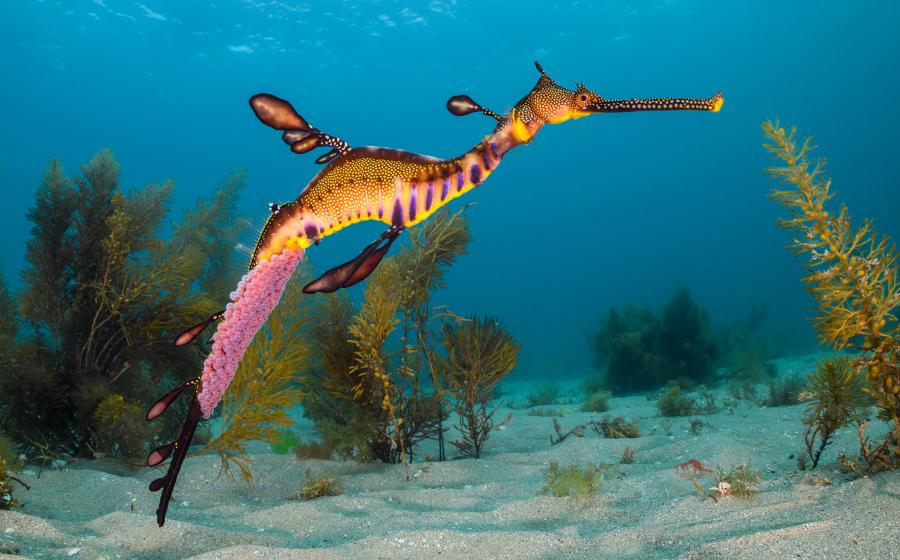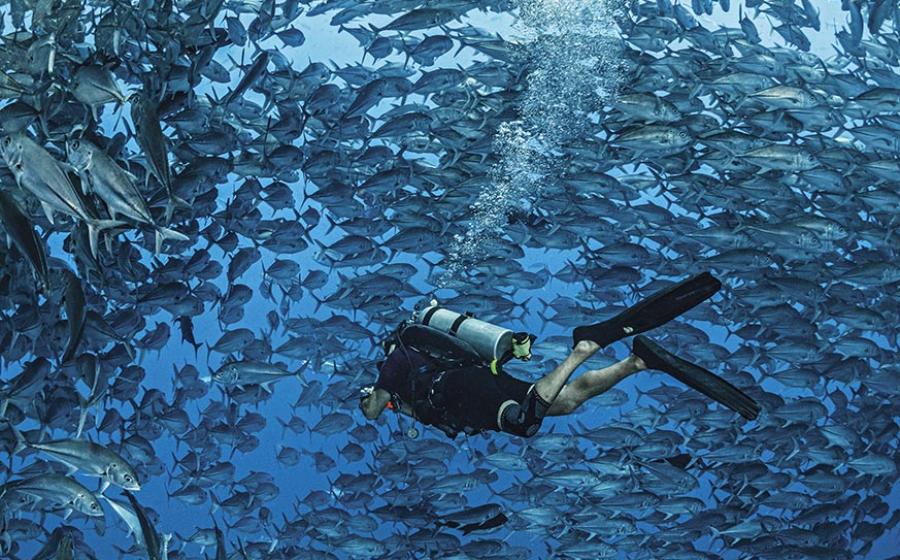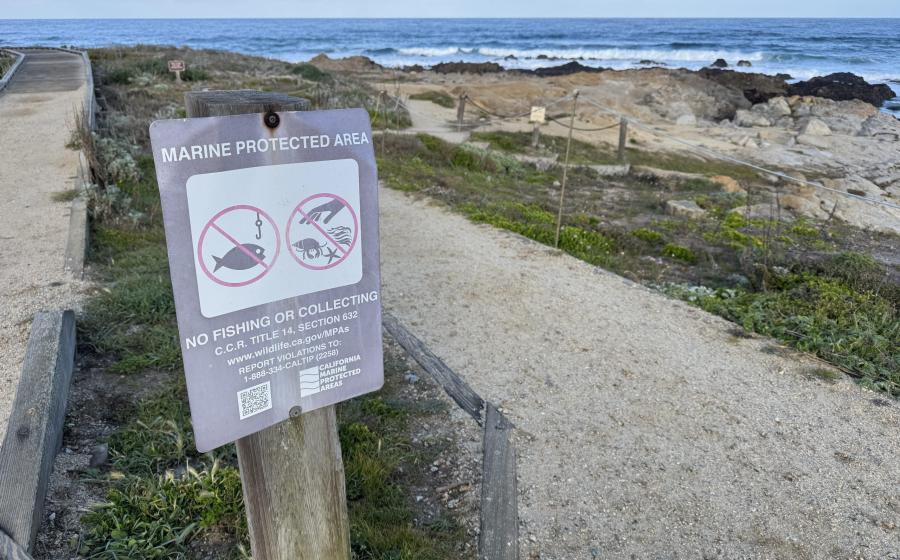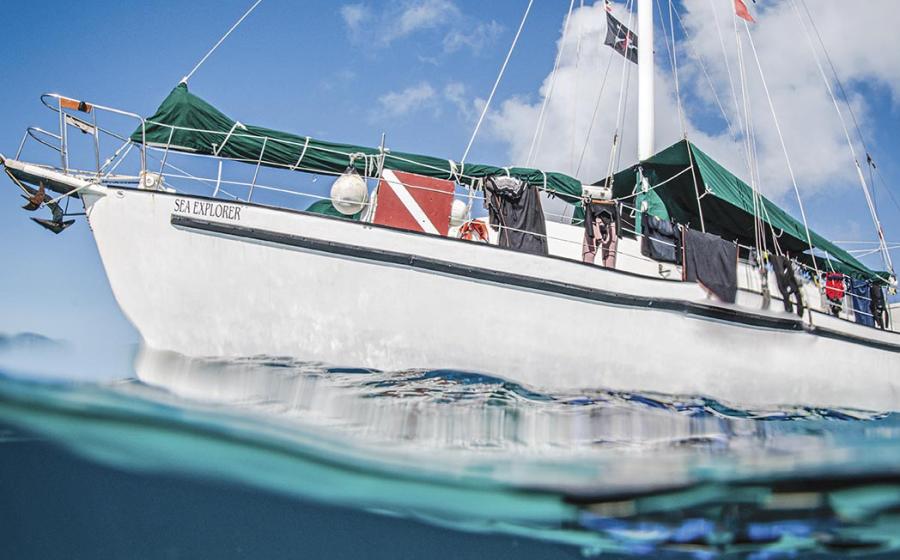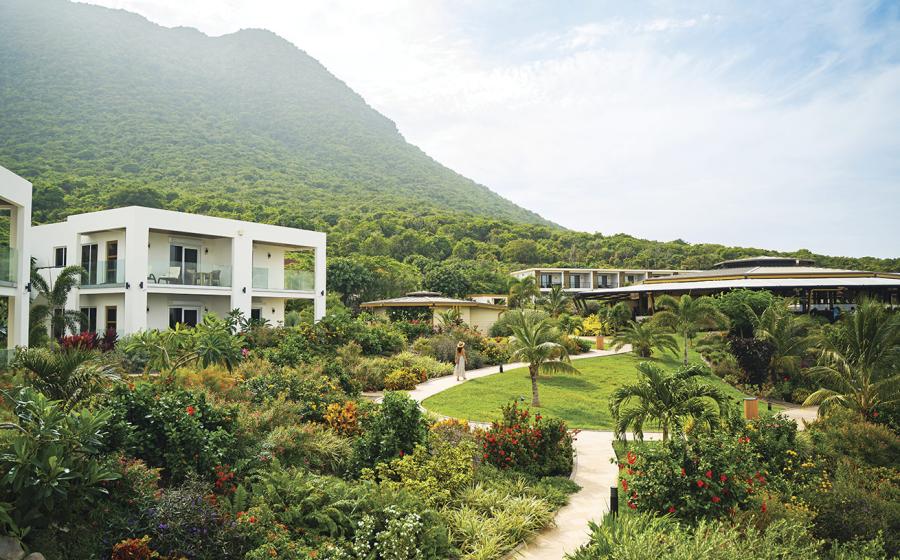Indonesia Sinks Illegal Fishing Boats in Dramatic Fashion
Last December, Indonesia’s newly elected president, Joko Widodo, made a promise to the people of his country: His government would build more and better ports, and revamp the country’s fisheries industry. But Widodo also made a more striking pledge: Any boats – sailing under the flag of any nation – found taking fish without permits in Indonesian waters would be seized, burned and sunk, an action permitted under a fishery law enacted in 2009. Photos of buring vessels circulating on the Internet in recent months prove that Widido is a man of his word.
"Indonesia has been a major focus [of marine conservationists] for years, and finally, the tide looks to be turning," says investigative photojournalist Shawn Heinrichs. "If the progress continues, Indonesia could one day transform into a model for sanctuaries and marine enforcement."
The exact number of vessels deliberately scuttled is not known; since December, the government reports that its navy has sunk dozens of fishing boats from neighboring countries.
But it’s a challenge to account for all seized vessels in the vast island nation.
What is clear is that Widodo seeks to help the local fishing industry and to protect its marine resources; his government says illegal foreign fishing vessels cost local fishers as much as $25 billion a year in lost catches.
Some conservationists view Widido’s aggressive stance as a sign that the Indonesian government will enforce a national law protecting all species of sharks and rays in its waters, but others are more cautious. “Indonesia spans a massive area of sea,” says Heinrichs. “It is impossible to monitor each and every fishing boat and landing site. You have NGO patrol teams that have been doing a lot to protect Raja Ampat. Conservation International has led the charge in the north with a network of patrol teams, and Misool Eco Resort has a full-time patrol infrastructure in place in the south. You then have government enforcement capacity in the form of the regional water police and the navy and army, which are national. The overlap can be quite confusing at times.”
Heinrichs says there’s been progress protecting mantas and sharks, but there is still work to do: “The Indonesian government is realizing the value of protecting key marine species and areas, and mantas and Raja Ampat are at the top of that list. Opportunistic landings of mantas — either as bycatch or directed fisheries — will be an ongoing struggle. The top manta fisher in Indonesia is Lamakera, a community that is entrenched in manta hunting. Success with our community-transition project here will be the linchpin to massively reducing manta landings in Indonesia.”
As word has spread in the conservation community, some have criticized Widodo's methods for achieving his goal. “The use of explosives to sink the boat disturbs and threatens the fish near the location of the explosion; in a way, it has the same effect as using dynamite to catch fish,” Greenpeace activist Arifsyah Nasution told reporters covering one sinking.
But the rewards may be worth it. One unintentional beneft is many of the sunken boats will become dive sites. “Given the richness of these waters, these vessels will be covered in corals and swarming with fish in no time," says Heinrichs. "We will work to develop new wreck dives in Indonesia, built around sunken illegal fishing vessels."
More important, Heinrichs is encouraged by Indonesia's recent commitment to marine conservation. "We have transformed the world's top fisher of manta rays into the world's largest manta sanctuary. Indonesia is also the world's largest fisher of sharks, and our aim is to address that next. Now that enforcement is coming online, the future for the sanctuary looks bright."
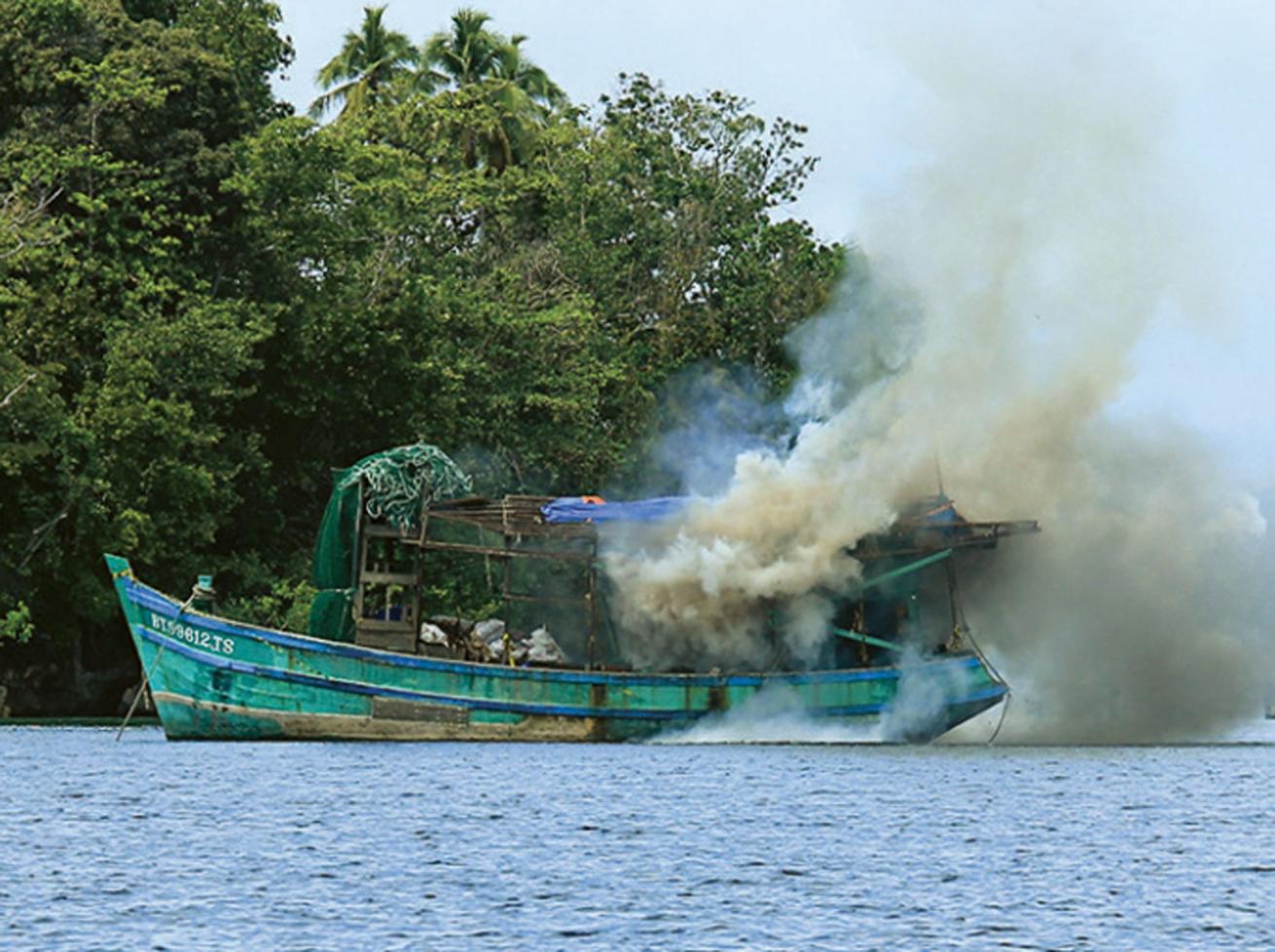
Courtesy Conservation International/Julius ThonakThe new president of Indonesia has declared that foreign fishing vessels found in Indonesian waters will be overtaken, burned and sunk.
Last December, Indonesia’s newly elected president, Joko Widodo, made a promise to the people of his country: His government would build more and better ports, and revamp the country’s fisheries industry. But Widodo also made a more striking pledge: Any boats – sailing under the flag of any nation – found taking fish without permits in Indonesian waters would be seized, burned and sunk, an action permitted under a fishery law enacted in 2009. Photos of buring vessels circulating on the Internet in recent months prove that Widido is a man of his word.
"Indonesia has been a major focus [of marine conservationists] for years, and finally, the tide looks to be turning," says investigative photojournalist Shawn Heinrichs. "If the progress continues, Indonesia could one day transform into a model for sanctuaries and marine enforcement."
The exact number of vessels deliberately scuttled is not known; since December, the government reports that its navy has sunk dozens of fishing boats from neighboring countries.
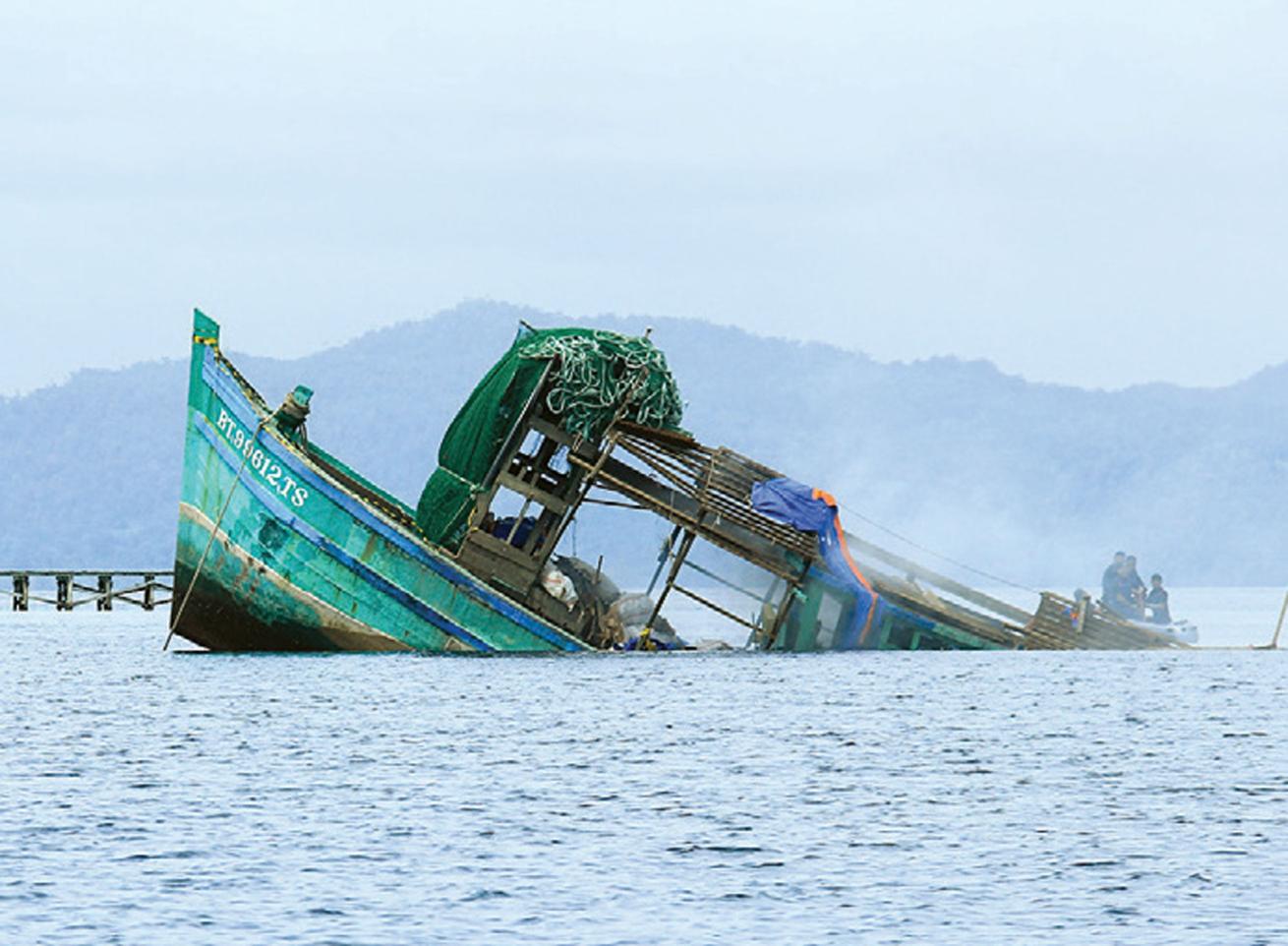
Courtesy Conservation International/Julius ThonakShips like this Vietnamese fishing vessel will become dive sites in Indonesia.
But it’s a challenge to account for all seized vessels in the vast island nation.
What is clear is that Widodo seeks to help the local fishing industry and to protect its marine resources; his government says illegal foreign fishing vessels cost local fishers as much as $25 billion a year in lost catches.
Some conservationists view Widido’s aggressive stance as a sign that the Indonesian government will enforce a national law protecting all species of sharks and rays in its waters, but others are more cautious. “Indonesia spans a massive area of sea,” says Heinrichs. “It is impossible to monitor each and every fishing boat and landing site. You have NGO patrol teams that have been doing a lot to protect Raja Ampat. Conservation International has led the charge in the north with a network of patrol teams, and Misool Eco Resort has a full-time patrol infrastructure in place in the south. You then have government enforcement capacity in the form of the regional water police and the navy and army, which are national. The overlap can be quite confusing at times.”
Heinrichs says there’s been progress protecting mantas and sharks, but there is still work to do: “The Indonesian government is realizing the value of protecting key marine species and areas, and mantas and Raja Ampat are at the top of that list. Opportunistic landings of mantas — either as bycatch or directed fisheries — will be an ongoing struggle. The top manta fisher in Indonesia is Lamakera, a community that is entrenched in manta hunting. Success with our community-transition project here will be the linchpin to massively reducing manta landings in Indonesia.”
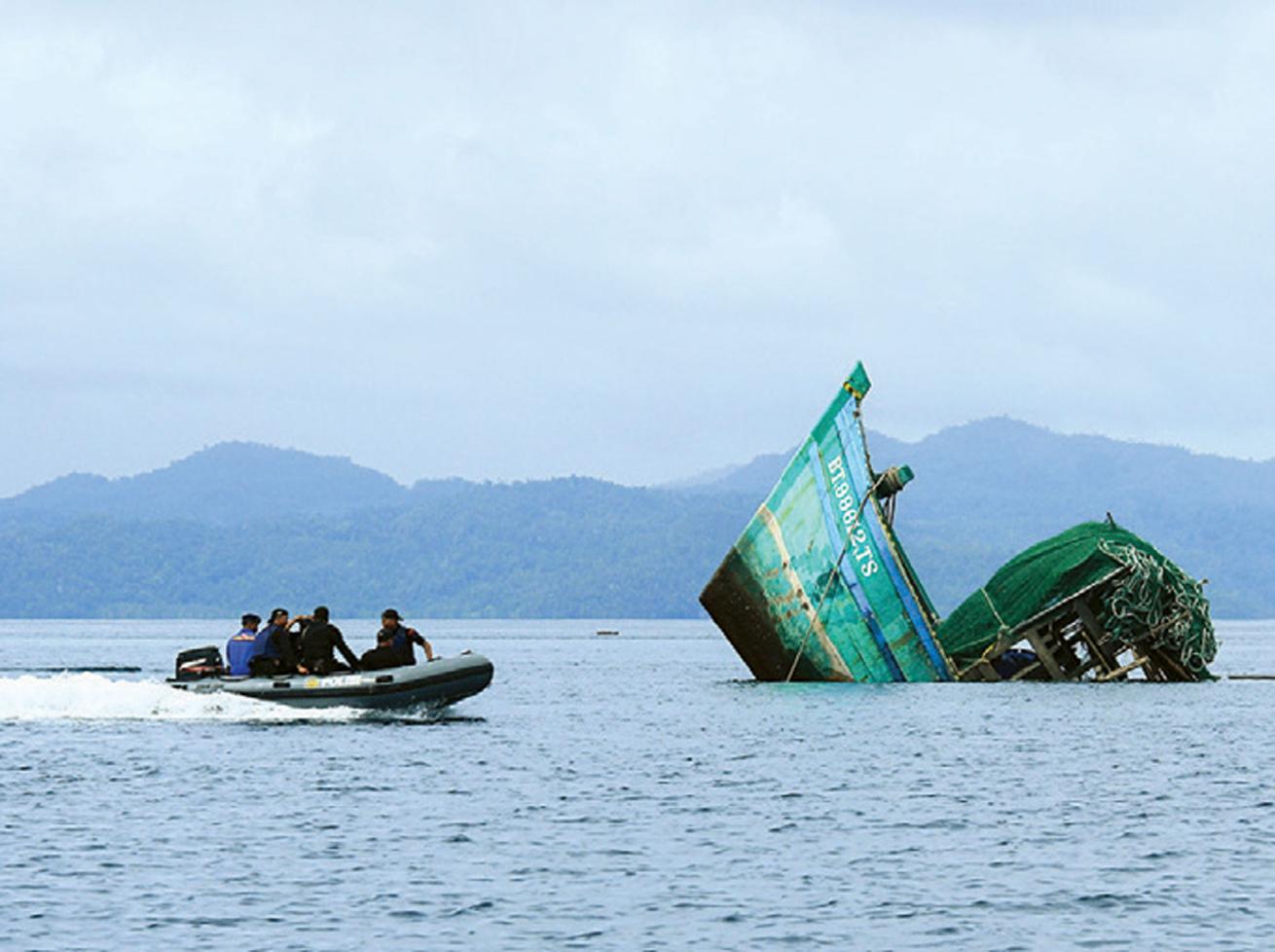
Courtesy Conservation International/Julius ThonakFor illegal fishing practices, this ship was seized, burned and sunk.
As word has spread in the conservation community, some have criticized Widodo's methods for achieving his goal. “The use of explosives to sink the boat disturbs and threatens the fish near the location of the explosion; in a way, it has the same effect as using dynamite to catch fish,” Greenpeace activist Arifsyah Nasution told reporters covering one sinking.
But the rewards may be worth it. One unintentional beneft is many of the sunken boats will become dive sites. “Given the richness of these waters, these vessels will be covered in corals and swarming with fish in no time," says Heinrichs. "We will work to develop new wreck dives in Indonesia, built around sunken illegal fishing vessels."
More important, Heinrichs is encouraged by Indonesia's recent commitment to marine conservation. "We have transformed the world's top fisher of manta rays into the world's largest manta sanctuary. Indonesia is also the world's largest fisher of sharks, and our aim is to address that next. Now that enforcement is coming online, the future for the sanctuary looks bright."

